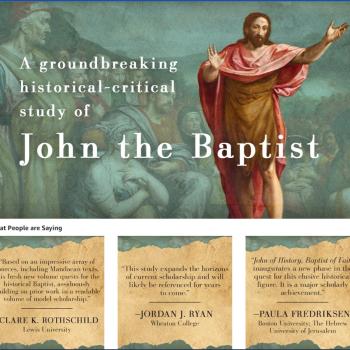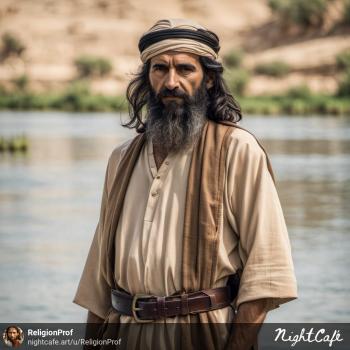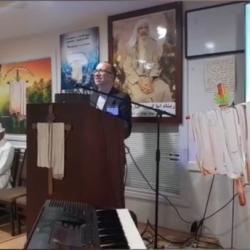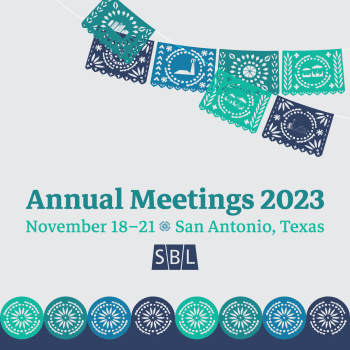It would have been easy for someone interested in the Mandaeans and related topics to miss that an article about “the truffle-hunters of Baghdad” would give them a significant mention. Here’s the relevant section of the article by Chloe Cornish (which is worth reading in its entirety):
I find another trace of ancient Baghdad by its great river. Turning an aubergine over a gas flame with his fingers, Anmar Ayib, a 30-year-old Mandaean sheikh, prepares a late lunch. Time is relative — by the calendar of John the Baptist, which the Mandaeans follow, the sheikh lives in the year 2052.
The Mandaeans have a strong case for being considered among the original Iraqis: the sect is thought to pre-date Islam but is shrinking. “Before 2003 there were over 100,000 Mandaeans in Iraq,” says the sheikh. “Currently there are less than 10,000. The situation is no longer bearable.” Mandaeans say they are persecuted for beliefs that many mainstream Muslims deem heretical. Some accuse Mandaeans of black magic.
Dressed in white — baggy trousers, T-shirt and headwrap — the sheikh drops the hot flaking aubergine on to a silver platter laden with fish from the Tigris, whole romaine lettuce, trailing spring onions, fresh herbs, sliced tomato and lemon. Folding the greens with his fingers, he explains he may not eat anything unnatural — no sugar, caffeine, processed food or alcohol, and no smoking either. Everything he ingests must be washed in river water.
Mandaean life is intimately connected with rivers. Sated, the sheikh knots a brown robe with a rope and goes to the river to pray. Three times a day he washes in the Tigris and worships “al hay” — Mandaean for god.
Sounds of traffic and music from a wedding procession wash downriver. On the opposite bank is a water park. Yet modernity fades around the still figure by the lapping waters.
“When will Mandaeans be finished in Iraq?” he asks rhetorically. “When the Tigris and Euphrates are finished.”
That may be rhetorical, but a juice box and plastic bag snarled in nearby reeds do hint at a threat to Iraq’s great rivers — pollution. Last year, tens of thousands were hospitalised in Basra, Iraq’s second city, poisoned by water made toxic by high levels of salt. Shoals of dead carp floated belly-up in the Euphrates, like a biblical plague.
“Al Hay” is of course a way of rendering the name of the supreme divine being in Mandaeism, “The Life” (more fully, “The First Great Life”).
The October 2017 issue of Refugee Transitions has as its cover story “The Mandaeans: A Story of Survival in the Modern World.” The article includes quotes and input from scholars such as Jorunn Buckley and Nathaniel Deutsch, and traces some of the history of the challenges Mandaeans have faced in the region of the world where they have historically resided.
I’ve recently created Google Alerts for a number of topics that interest me, as well as precise references to my name or titles of my books that are distinctive so that I don’t get a lot of emails. Mandaeans is one of those, and I’m already appreciating this service that Google provides!
One that came to my attention this way, that I surely would have missed otherwise, was a piece about Harold Bloom’s reference in the context of fiction to the Mandaeans. See also this very recent piece about Mandaean refugees from Iran, with lots of photos surveying the people, their celebrations, and much else that you’re sure to find of interest…













